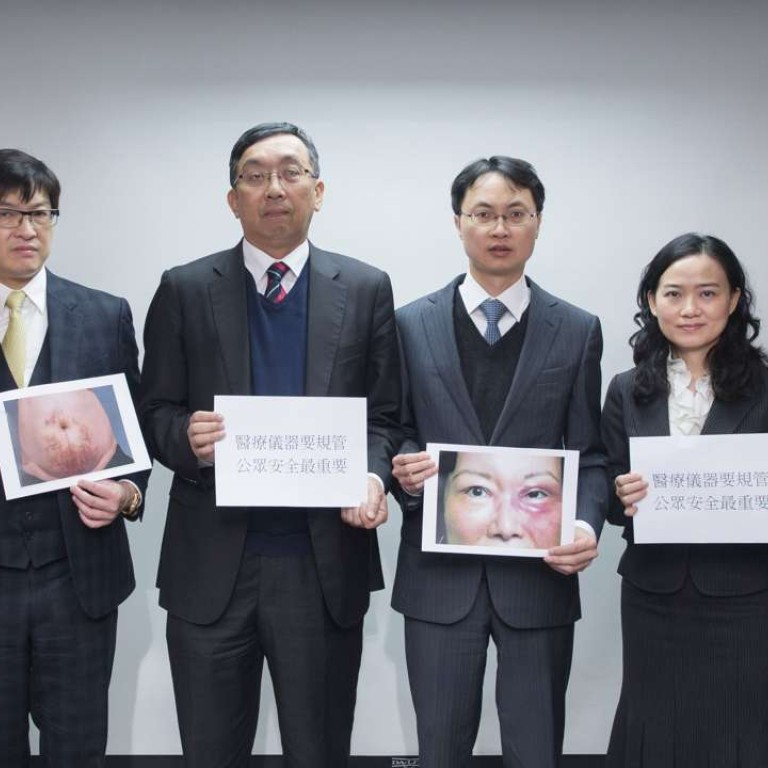
Hong Kong doctors say beauticians should not handle high risk procedures and devices
Government to hold meeting next Monday with stakeholders over proposed regulations beauty therapy medical devices
A collective of Hong Kong doctor groups has argued that a number of risky medical devices and beauty procedures should be operated by them, not by beauticians.
The proposal said beauticians who have completed government-recognised training would be allowed to operate the devices either under a registered doctor’s supervision or alone, depending on the riskiness of the procedure. But the supervising doctor would not be required to be present the entire time.
Despite the tighter rules, a group of five medical societies related to plastic surgery and dermatology on Wednesday called for even stricter regulation and for some devices to be used only by doctors.
Plasma devices for skin resurfacing, which beauticians use to reduce wrinkles, was considered by the government to be safe for trained beauticians to perform alone in the regulatory proposal.
However, Dr Ho Chiu-ming, a specialist in plastic surgery and council member of the Society of Plastic, Reconstructive and Aesthetic Surgeons, disputed the decision.
“It is a controlled skin burn, as the skin would peel off four to five days after the procedure... if there is any wound on the skin, it is no longer a beauty treatment but a medical procedure,” he said.
Robotic hair restoration devices, which trained beauticians were allowed to operate under doctor supervision in the proposal, should also be used only by doctors, Ho said.
“A localised anaesthesia is needed and the procedure could take several hours... it is not simply a beauty treatment, but a medical surgery,” he said, adding the procedure can on occasion require tranquilliser drugs for the patient.
The government’s proposal also included the establishment of a registration system for the thousands of different medical devices currently used in the city. However, Ho said more needed to be done to safeguard customers.
“Devices should also clearly state their purposes... It’s like, you would not use a fruit knife for shaving hair,” he said.
The five medical groups criticised the city’s current laws as “lagging behind” when compared to international standards, and welcomed the government’s action on the issue.
The proposal has also faced strong opposition from the beauty sector, which argued the devices had been in common use for a long time without any problems.
A special meeting will be held at the Legislative Council next Monday to gather stakeholders’ opinions on the proposal, with a bill expected to be tabled later in the year.

